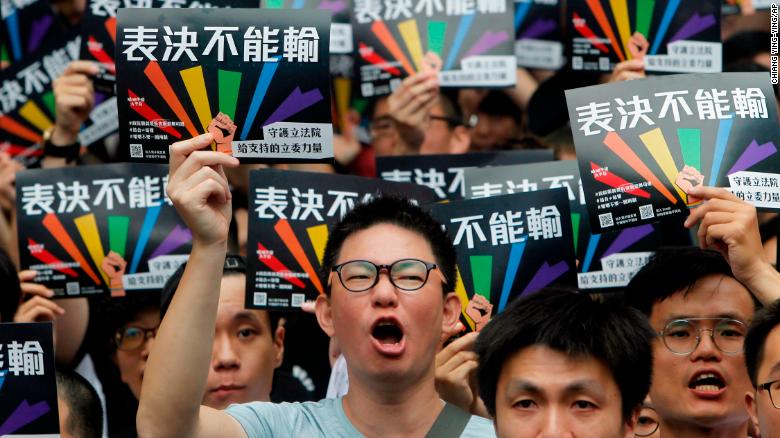Lawmakers were given a two-year deadline, but reached a deadlock. Taiwan’s gay marriage opponents seized the opportunity to put forward a referendum asking voters whether they agreed with same-sex marriage.
Taiwan Alliance to Promote Civil Partnership Rights executive director Victoria Hsu, who represented Chi during his case, said she expected attitudes towards LGBTQ people to improve after the bill as they would see that heterosexual families “wouldn’t lose anything.”
But Hsu — who plans to register her marriage with her partner of six years when the bill takes effect next Friday — said more still needed to be done to make LGBTQ people truly equal.
“The fight is not over, but we will continue from this brand-new start,” she added.
Amnesty International Taiwan’s acting director Annie Huang agreed, saying: “The Taiwanese government must not stop here. It needs to act to eliminate all forms of discrimination on the grounds of sexual orientation, gender identities and intersex status.”
LGBTQ rights in Asia
Taiwan’s vote sets it apart from other parts of Asia where LGBTQ rights have regressed.
In mainland China, where homosexuality is legal but prejudices and discrimination against LGBT people persist under Communist Party rule, an author of same-sex erotic fiction was sent to
jail for 10 years in November.
In April, the ruler of the tiny, oil-rich kingdom of Brunei announced he would introduce
death by stoning for those convicted of gay sex. Sultan Hassanal Bolkiah has since said the death penalty will not be imposed, although he did not repeal the law.
In Indonesia, declining secularism has led to deepening discrimination against the country’s gay, lesbian and transgender communities. Last year, two men accused of being gay
received 87 lashes for gay sex in the country’s conservative Aceh province.
More than two dozen countries around the world allow gay marriage,
according to Pew Research.
Update: This story has been updated to reflect Taiwan’s status
CNN’s Steven Jiang in Beijing contributed to this report.
